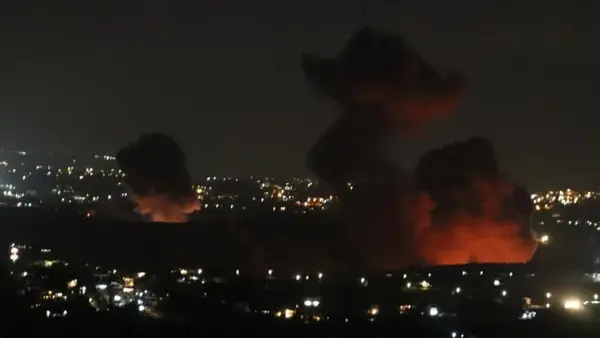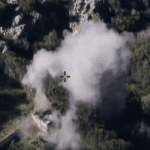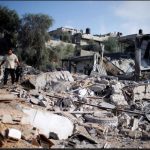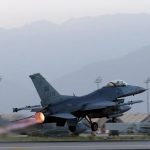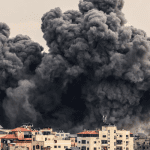A “barrage” of rockets has been fired into northern Israel from Lebanon overnight, according to the Israeli army, as Hezbollah targeted industrial and military sites.
Most of the 105 rockets were intercepted, though some homes were hit. Air raid sirens sounded throughout the night, the Israel Defense Forces said.
Hezbollah said it had fired dozens of rockets towards targets in northern Israel in retaliation for last week’s pager and walkie-talkie attacks.
Israel has also continued attacking targets in Lebanon following Friday’s air strike in Beirut which the IDF said killed a dozen senior Hezbollah commanders. Lebanon said 37 people – including three children – were killed.
On Saturday, dozens of fighter jets started “extensively” striking southern Lebanon “following detection of Hezbollah preparing to fire toward Israeli territory”,
Israel Defense Forces (IDF) spokesman Rear Adm Daniel Hagari said.
Before the evening Israeli strikes began, the IDF said earlier it had destroyed “about 180 sites and thousands of [rocket] launcher barrels” with strikes
Earlier this week, 39 people were killed and thousands wounded after pagers and walkie-talkies used by Hezbollah, the Iranian-backed militia and political group, exploded on two days across Lebanon.
On Thursday, Hezbollah leader Hassan Nasrallah blamed Israel for the attacks, saying it had crossed “all red lines” and vowed “just punishment”.
Israel has not claimed responsibility.
UN human rights chief Volker Türk said the pager and walkie-talkie explosions violated international humanitarian law.
On Sunday morning, the IDF announced an expansion of new restrictions on communities in northern Israel and parts of the southern Golan Heights that had come into effect at 20:30 local time (17:30 GMT) the night before.
The IDF’s Home Front Command limited gatherings to 10 participants in an open area and 100 participants in a closed space. Educational activities can continue and arrival to work is permitted as long as there are protected spaces available.
The restrictions apply to the Haifa area and northward.
As fears increase that the conflict may break out into a full-scale war, the US State Department issued new travel advice for citizens currently in Lebanon.
The US Embassy in Beirut has urged people to “depart Lebanon while commercial options still remain available”, noting they were already running at “reduced capacity”.
The embassy added it “may not be able to assist US citizens who choose to remain”.
Neighbouring Jordan’s foreign ministry issued similar advice to its citizens, urging those in Lebanon to leave as soon as possible.
Cross-border fighting between Israel and Hezbollah escalated on 8 October 2023 – the day after the attack on Israel by Hamas gunmen from Gaza – when Hezbollah fired at
Israeli positions in solidarity with the Palestinians.
Israel recently added the return of people displaced from the north of the country due to the cross-border fighting to its list of war goals.
Defence Minister Yoav Gallant said on Thursday that Israel was entering a “new phase of the war” concentrating more of its efforts in the north.

